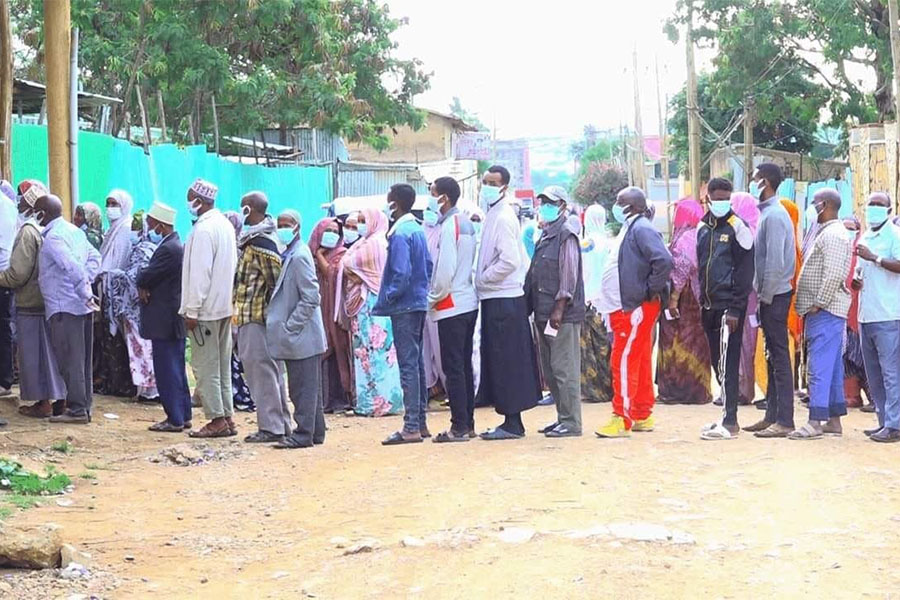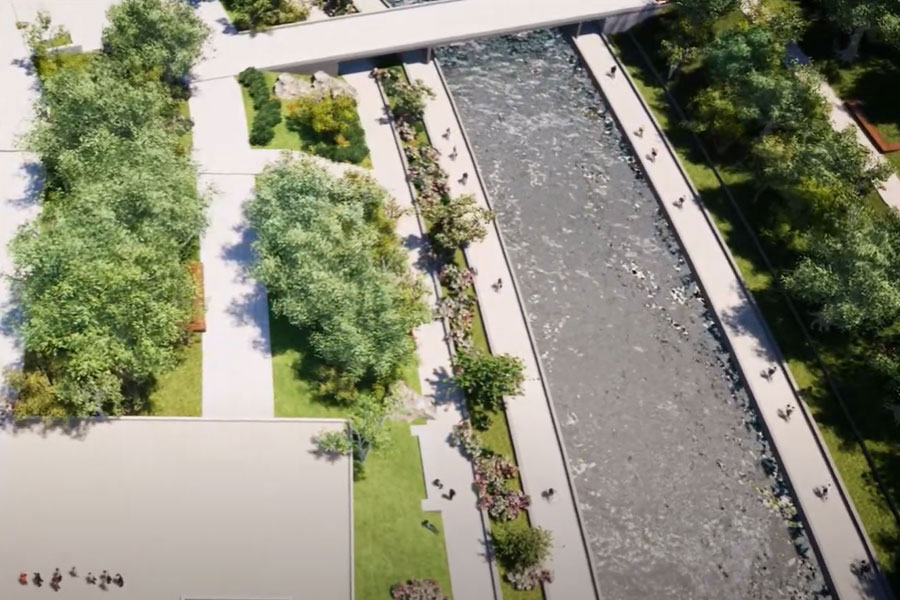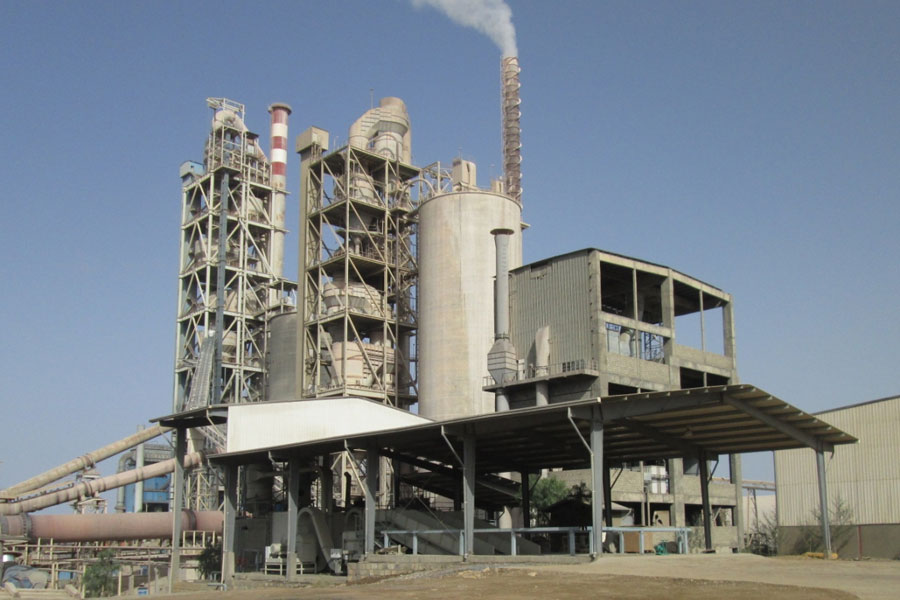
Jun 25 , 2022.
It is not the best of times to be in charge of governance in Ethiopia, whether at the federal or regional levels.
The news of atrocities coming from around the country is horrific. Enervating insecurity over the past four years in all but Somali Regional State is abound. Ethiopia is one of the 10 conflict zones to watch this year, according to Armed Conflict Location & Event Data Project (ACLED), a conflict mapping project under the University of Sussex. It monitored 1,650 violent political conflicts last year, causing no less than 8,500 casualties in lives. The recent massacre of hundreds of people in Wellega Zone signals that the days of political stability are not within reach.
The economy is in tatters. Yet, policymakers appear to want to bootstrap their way out of the inflationary environment created by the consequences of the pandemic, war, money-printing and soaring global commodity prices. Capital spending is down. Debt servicing will be the highest next year, and subsidies to regional states will not be able to catch up with inflationary pressure in the broader economy. With recurrent budget ballooning, claimed mainly by defence expenditures, the IMF projects the deficit to grow even higher.
There is one person who has gotten the shortest end of the stick this year.
Birtukan Mideksa, chief of the National Electoral Board, was spurned in her much-expanded budget request. She proposed an allocation of six billion Birr for the coming fiscal year, a request which made Messrs Ahmed Shide and his deputy Eyob Tekalign (PhD) baulked at the ask representing 8,262pc of the budget ceiling. They were willing to go 194pc above, higher than most agencies. In the proposed spending bill for the coming year, Madam Birtukan has to be contended with receiving under a quarter of a billion Birr for recurrent spending – a blow to the constitutional institution she is in charge of.
In most years, this should not have been an issue. But now, it goes beyond just a matter of a thrifty Finance Ministry and a federal agency. Instead, it reaches the very essence of federalism, and the power denied to local governments. The federal government starving the Electoral Board of critical funding when local elections have not been held in nine years (and counting) speaks to the gap in the exercise and understanding of federalism. Or the intended neglect of the tenet of the constitution.
Come next year, local government officials serving in weredas, kebeles, zones and city administrations (except for Addis Abeba and Dire Dawa) will have spent a decade without elections having taken place. The last local election was held in 2013; the next one was supposed to be held in five years but has been postponed since. Not even murmurs over when they would be held are heard anymore. It is barely brought up in whatever is left off the public discourse in civility.
Elections in Ethiopia have been essential exercises in measuring economic performance, representation and justice by bringing scrutiny to constitutional institutions and governance. The electorate may grumble about (and those who dare confront the police out on the streets) the voting process's fairness and the outcomes' credibility. However, until the mid-2010s, the regularity of national elections was not tested, come what may the political fever.
Take the 2013 local elections. While it left much to be desired, particularly in the fairness department, almost 32 million voters were registered, and 3.6 million candidates (most of them from the now defunct EPRDF) had contested. While such elections might have been flawed under an incumbent with a hegemonic grip, it was not useless. Subsequent administrations were supposed to work on the flaws, not forget all about them.
Local elections are every bit as important as those held at regional or federal levels. Local officials do not exercise expansive powers or administer funds quite as large. But local governments are the closest to the people; it is a manifestation of the devolution of political power. Policing, health and education are all under the purview of local governments. The electorates are redistricted at the wereda level. At the local level, the daily challenges of voters can be addressed where there are officials closer to communities. They are supposedly better placed to recognise challenges and respond to address them.
Why is an election detrimental to advancing citizens' constitutional rights barely getting any attention? How is it possible that not a single federal legislator raised that the Electoral Board is being hampered from administering local elections when it is starved of funding?
Partly, it seems awareness of how the federal system works is fading. It feels like the ghosts of Ethiopia’s imperial past, where local officials are appointed from the centre, have resurfaced. Even during the Ethiopian Peoples' Democratic Republic of the Dergue, political power was exercised at the highest levels, not decentralised and redistributed to local administrations.
Ethiopia became a federated republic in the mid-1990s. Most people now assume that the increasing assertiveness of regional states is "revolutionary" when it is just a feature of federalism. Revolutionary would have been when local officials put their constituents before party loyalty and the dictates of regional or federal officials.
The problem, nonetheless, is that there is no constitutional obligation to hold local elections over a specified time. Local governments are beholden to the whims of state governments. The constitution only vaguely guarantees that “adequate power shall be granted to the lowest units of government,” which can be read in many ways in governing the power of lower administrative units. Parliament can meet, however, at year’s end and decide whether or not local elections would be held the year after.
The first few years the elections were postponed could be excused due to a challenging environment due to political instabilities. Widespread violent protests spurred by the youth bulge might have made it not ideal for undertaking such a political enterprise. But the decision to delay indefinitely when national elections have taken place under the toughest possible conditions of widespread conflicts and war could only manifest the failure to live up to the spirit of federalism. It cannot be justified.
It is understandable that there needed to be budget cuts considering the alarmingly growing gap in the federal budget deficit. But issues concerning political representations are not to be put on the backburner. It ought to be a priority to contribute to political stability. The federal parliament is responsible for ensuring adequate funding was appropriated to the Electoral Board. Under runaway inflation and the scale of local elections, the budget should match the 3.7 billion Br allocated to hold the national elections last year. For now, though, Birtukan has lost the budgetary battle. It will be a matter of curiosity to see how competent she will be to see through local elections next year with a stringent budget.
It could also be an idea worth considering to have an insurance policy against parliament’s prerogative to postpone local elections indefinitely. A constitutional guarantee would be ideal, an item to consider for constitutional amendments. If not, the electoral law, which has a scope of application at all levels of elections, can put forward some safeguards. Regional states get to determine the timing and even the number of representatives for elections, but the federal legislative house is also responsible for the “enforcement of the political rights established by the Constitution and electoral laws and procedure.” As far as local elections are political rights, this offers scope for debate.
It is against the interest of regional states to empower local officials and administrative units. But the spirit and promise of federalism call for it. Ultimately, the power of regional states over local elections may never be taken away, and arguably, it should not. Still, they need to be scrutinised and accounted for their actions, or lack thereof.
PUBLISHED ON
Jun 25,2022 [ VOL
23 , NO
1156]

Fortune News | Sep 30,2021

View From Arada | May 23,2021

Radar | Jul 20,2019

Fortune News | Jul 13,2020

Fortune News | Jun 18,2022

Fortune News | Feb 08,2020

My Opinion | Dec 11,2021

Fortune News | Jul 09,2022

Fortune News | Feb 03,2024

Fortune News | Feb 27,2021

My Opinion | 132151 Views | Aug 14,2021

My Opinion | 128561 Views | Aug 21,2021

My Opinion | 126482 Views | Sep 10,2021

My Opinion | 124091 Views | Aug 07,2021

Dec 22 , 2024 . By TIZITA SHEWAFERAW
Charged with transforming colossal state-owned enterprises into modern and competitiv...

Aug 18 , 2024 . By AKSAH ITALO
Although predictable Yonas Zerihun's job in the ride-hailing service is not immune to...

Jul 28 , 2024 . By TIZITA SHEWAFERAW
Unhabitual, perhaps too many, Samuel Gebreyohannes, 38, used to occasionally enjoy a couple of beers at breakfast. However, he recently swit...

Jul 13 , 2024 . By AKSAH ITALO
Investors who rely on tractors, trucks, and field vehicles for commuting, transporting commodities, and f...

Jul 13 , 2025 . By YITBAREK GETACHEW
The Addis Abeba City Revenue Bureau has introduced a new directive set to reshape how...

Jul 13 , 2025 . By BEZAWIT HULUAGER
Addis Abeba has approved a record 350 billion Br budget for the 2025/26 fiscal year,...

Jul 13 , 2025 . By RUTH BERHANU
The Addis Abeba Revenue Bureau has scrapped a value-added tax (VAT) on unprocessed ve...

Jul 13 , 2025 . By NAHOM AYELE
Federal lawmakers have finally brought closure to a protracted and contentious tax de...